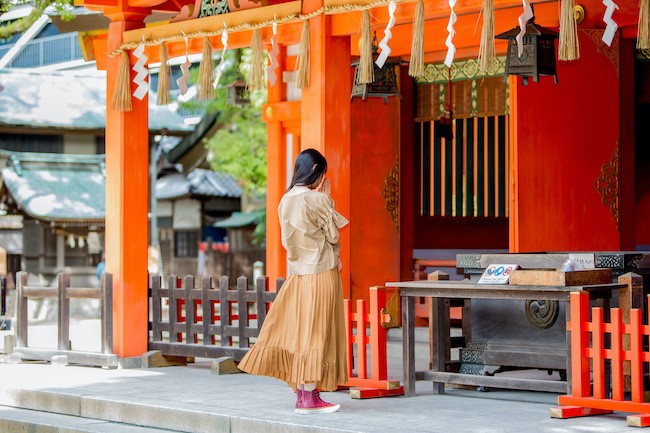Religions declining in East Asia, but spirituality remains
Even those who claim to have no creed engage in some form of ancestor worship, burning incense and leaving offerings at temples, this according to a report just released by the Pew Research Center on Japan, South Korea, Taiwan, Hong Kong, and Vietnam. The study highlights the difficulties of investigation in view of the local notion of religion, which in local languages is often associated only with hierarchical organisations. The rate of religious switching is higher in this region than anywhere else in the world.
Milan (AsiaNews) – At first glance it might seem that religion has no place in the lives of East Asians. Adults are rarely seen praying and many say they do not consider it important, to the extent that the rates of disaffiliation (people leaving religion) are among the highest in the world.
Yet, an in-depth analysis shows that the majority of the population today still practices traditional rites, especially with respect to ancestors, and maintains a strong sense of spirituality, this according to the latest report by the Pew Research Center, which surveyed more than 10,000 adults in Japan, South Korea, Taiwan, Hong Kong, and Vietnam.
The research notes that the term religion itself is an important point in the research; “common translations of ‘religion’ (such as zongjiao in Chinese, shūkyō in Japanese and jonggyo in Korean) often are understood to refer to organized, hierarchical forms of religion, such as Christianity or new religious movements – not to traditional Asian forms of spirituality,” reads the report.
Many adults – from 27 per cent in Taiwan to 61 per cent in Hong Kong - say they have “no religion”. But about half leave offerings or burn incense to their ancestors; at least four out of ten believe in God or other higher entities; and more than a quarter believe in the spirits inhabiting the physical world, like mountains, rivers and trees.
“In short, when we measure religion in these societies by what people believe and do, rather than whether they say they have a religion, the region is more religiously vibrant than it might initially seem.”
In this sense, Buddhism, which has historical roots in several Asian countries, has been defined by members of different faiths not so much as "a religion one chooses to follow", but more as "a set of ethical teachings to guide actions" and "a culture one is a part of”.
Specifically, in Japan, 42 per cent of the population does not identify with any religion, but those who declare themselves Buddhist are 46 per cent while70 per cent say that they had brought offerings to temples in the past year.
In Hong Kong, 30 per cent pray to Guanyin, the Buddhist deity of compassion, but only 14 per cent say they are Buddhist and 20 per cent are Christian.
In Vietnam, the only Southeast Asian country surveyed, 48 per cent of respondents say they had no religion, compared to 38 per cent for Buddhists and 10 per cent of Christians, but 86 per cent had performed ancestor rites in the previous 12 months. Among people who are not affiliated with any creed, the percentage rises to 92 per cent.
In general, ancestors are important throughout the region, whose support many people say they felt and feel in their lives.
The report also confirms the famous Japanese saying that people are born Shinto, marry Christian, and die Buddhist.
The rate of switching from one religion to another ranges from 17 per cent in Vietnam and 53 per cent in South Korea and Hong Kong to 32 per cent in Japan and 42 per cent in Taiwan.
These are the highest percentages recorded so far by the Pew Research Center in various countries around the world.
Several people also say they felt a personal connection to the "lifestyle" of another faith or philosophy; for example, 34 per cent of South Korean Christians say they felt connected to the Buddhist lifestyle, while only 26 per cent of Buddhists feel the same vis-à-vis Christianity.
In general, however, regardless of whether the initial religion is Buddhism, Christianity or Taoism (especially in Taiwan), there has been a sharp increase in disaffiliation in all the countries examined, except in Vietnam, where the figure is only 4 per cent and the share of people who declare themselves to be Buddhist has increased.
It is thus not surprising that the percentage of people who believe that religion is very important in their lives is very low: 11 per cent in Hong Kong, 6 per cent in Japan, 16 per cent in South Korea, 11 per cent in Taiwan and 26 per cent in Vietnam. However, those who believe in karma are 87 per cent in Taiwan, and 75 per cent in Vietnam, and 76 per cent in Hong Kong.
In Vietnam, 42 per cent of respondents said they had been visited by some ancestor in a dream, compared to 40 per cent in South Korea and 36 per cent in Japan and Taiwan.
In South Korea, 59 per cent practice or have practiced meditation but only 21 per cent pray daily.
12/02/2016 15:14
01/10/2019 13:09
16/01/2023 13:47
07/10/2016 12:50







.png)










